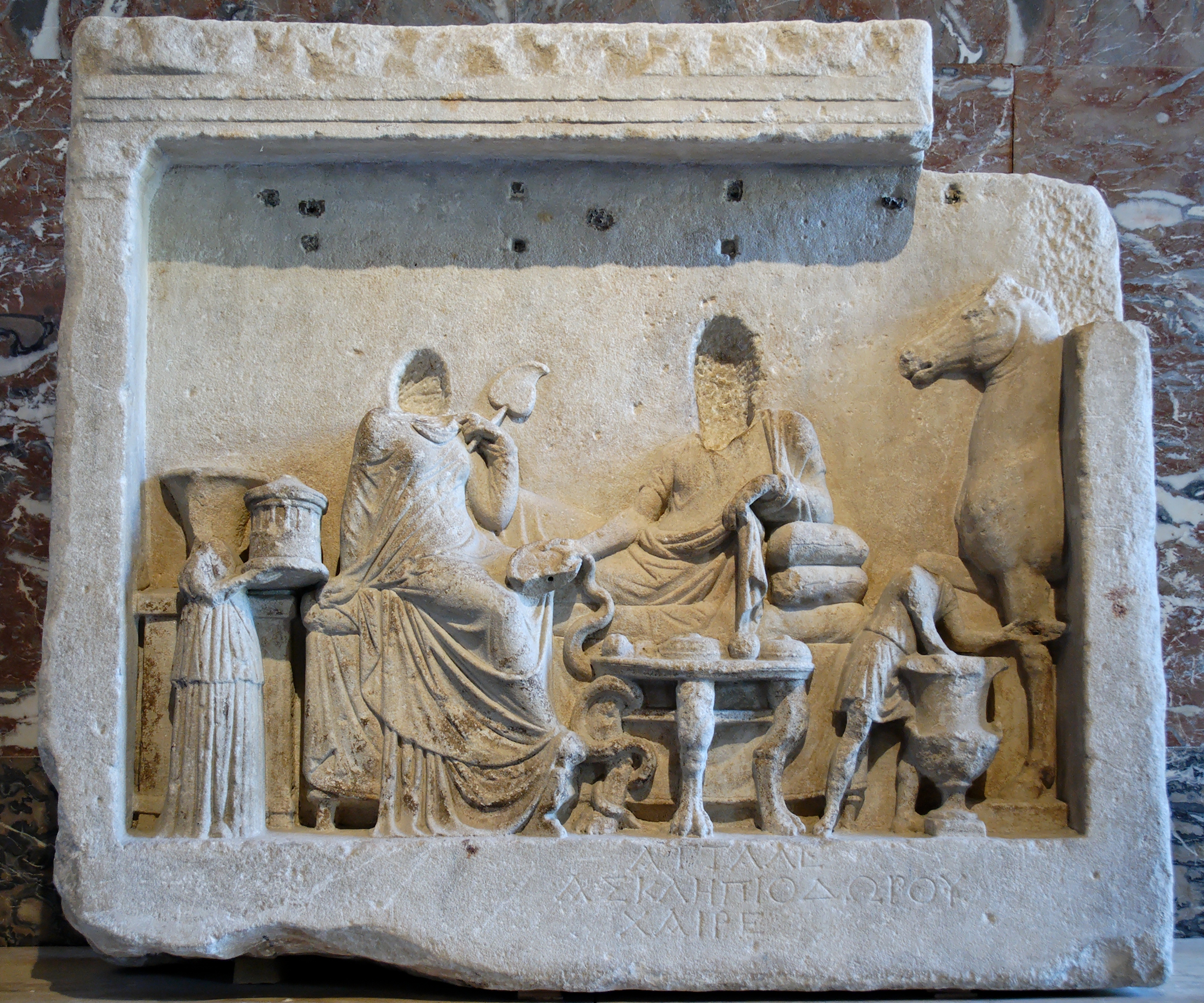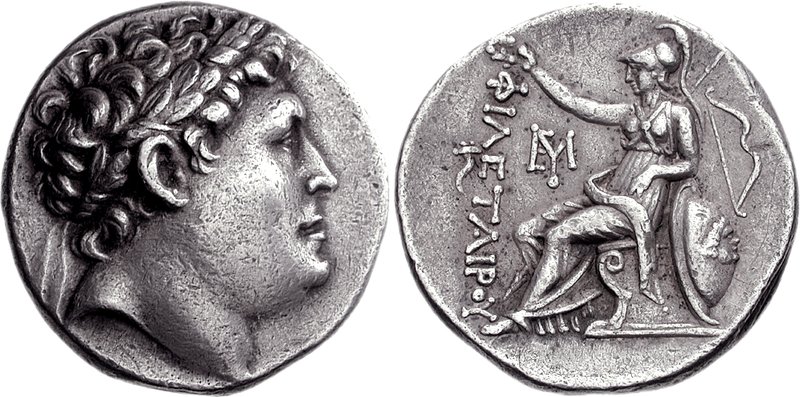|
Neanthes Of Cyzicus
Neanthes of Cyzicus (; el, Νεάνθης ὁ Κυζικηνός) was a Greek historian and rhetorician of Cyzicus in Anatolia living in the fourth and third centuries BC. Biography Neanthes was a pupil of Philiscus of Miletus ("who is reasonably certain to have died before 300 BC"Michael Weißenberger, "Neanthes," ''Brill's New Pauly'', 2011). Philiscus himself had been a pupil of Isocrates. In an honorary decree of 287 BC, the people of Delphi award him the proxeny, and this is the earliest of "only five decrees from the third century honoring historians, teachers of grammar or literature, or philosophers for their educational activities in the cities' gymnasia." Neanthes was a voluminous writer, principally of history, but very little has reached us to form any judgement of his merits. The various authors that quote him seem, with rare exceptions, to place great reliance on his accuracy and judgement. He is frequently referred to by Diogenes Laërtius, Athenaeus, and by several ... [...More Info...] [...Related Items...] OR: [Wikipedia] [Google] [Baidu] |
Cyzicus
Cyzicus (; grc, Κύζικος ''Kúzikos''; ota, آیدینجق, ''Aydıncıḳ'') was an ancient Greek town in Mysia in Anatolia in the current Balıkesir Province of Turkey. It was located on the shoreward side of the present Kapıdağ Peninsula (the classical Arctonnesus), a tombolo which is said to have originally been an island in the Sea of Marmara only to be connected to the mainland in historic times either by artificial means or an earthquake. The site of Cyzicus, located on the Erdek and Bandırma roads, is protected by Turkey's Ministry of Culture. History Ancient The city was said to have been founded by Pelasgians from Thessaly, according to tradition at the coming of the Argonauts; later it received many colonies from Miletus, allegedly in 756 BC, but its importance began near the end of the Peloponnesian War when the conflict centered on the sea routes connecting Greece to the Black Sea. At this time, the cities of Athens and Miletus diminished in impo ... [...More Info...] [...Related Items...] OR: [Wikipedia] [Google] [Baidu] |
Panegyric
A panegyric ( or ) is a formal public speech or written verse, delivered in high praise of a person or thing. The original panegyrics were speeches delivered at public events in ancient Athens. Etymology The word originated as a compound of grc, παν- 'all' (the form taken by the word πᾶν, neuter of πᾶς 'all', when that is used as a prefix) and the word grc, ἄγυρις, ágyris 'assembly' (an Aeolic dialect form, corresponding to the Attic or Ionic form grc, ἀγορά, agorá). Compounded, these gave grc, πανήγυρις, panḗgyris 'general or national assembly, especially a festival in honour of a god' and the derived adjective grc, πανηγυρικός, panēgyrikós 'of or for a public assembly or festival'. In Hellenistic Greek the noun came also to mean 'a festal oration, laudatory speech', and the adjective 'of or relating to a eulogy, flattering'. The noun grc, πανήγυρις, panḗgyris had been borrowed into Classical Latin by around the ... [...More Info...] [...Related Items...] OR: [Wikipedia] [Google] [Baidu] |
3rd-century BC Historians
The 3rd century was the period from 201 (Roman numerals, CCI) to 300 (Roman numerals, CCC) Anno Domini (AD) or Common Era (CE) in the Julian calendar.. In this century, the Roman Empire saw a Crisis of the Third Century, crisis, starting with the assassination of the Roman Emperor Severus Alexander in 235, plunging the empire into a period of economic troubles, barbarian incursions, political upheavals, civil wars, and the split of the Roman Empire through the Gallic Empire in the west and the Palmyrene Empire in the east, which all together threatened to destroy the Roman Empire in its entirety, but the reconquests of the seceded territories by Emperor Aurelian and the stabilization period under Emperor Diocletian due to the administrative strengthening of the empire caused an end to the crisis by 284. This crisis would also mark the beginning of Late Antiquity. In Persia, the Parthian Empire was succeeded by the Sassanid Empire in 224 after Ardashir I defeated and killed Art ... [...More Info...] [...Related Items...] OR: [Wikipedia] [Google] [Baidu] |
Hellenistic-era Historians
In Classical antiquity, the Hellenistic period covers the time in Mediterranean history after Classical Greece, between the death of Alexander the Great in 323 BC and the emergence of the Roman Empire, as signified by the Battle of Actium in 31 BC and the conquest of Ptolemaic Egypt the following year. The Ancient Greek word ''Hellas'' (, ''Hellás'') was gradually recognized as the name for Greece, from which the word ''Hellenistic'' was derived. "Hellenistic" is distinguished from "Hellenic" in that the latter refers to Greece itself, while the former encompasses all ancient territories under Greek influence, in particular the East after the conquests of Alexander the Great. After the Macedonian invasion of the Achaemenid Empire in 330 BC and its disintegration shortly after, the Hellenistic kingdoms were established throughout south-west Asia (Seleucid Empire, Kingdom of Pergamon), north-east Africa ( Ptolemaic Kingdom) and South Asia (Greco-Bactrian Kingdom, Indo-Greek Kin ... [...More Info...] [...Related Items...] OR: [Wikipedia] [Google] [Baidu] |
Ancient Greek Biographers
Ancient history is a time period from the beginning of writing and recorded human history to as far as late antiquity. The span of recorded history is roughly 5,000 years, beginning with the Sumerian cuneiform script. Ancient history covers all continents inhabited by humans in the period 3000 BCAD 500. The three-age system periodizes ancient history into the Stone Age, the Bronze Age, and the Iron Age, with recorded history generally considered to begin with the Bronze Age. The start and end of the three ages varies between world regions. In many regions the Bronze Age is generally considered to begin a few centuries prior to 3000 BC, while the end of the Iron Age varies from the early first millennium BC in some regions to the late first millennium AD in others. During the time period of ancient history, the world population was already exponentially increasing due to the Neolithic Revolution, which was in full progress. While in 10,000 BC, the world population stood ... [...More Info...] [...Related Items...] OR: [Wikipedia] [Google] [Baidu] |
3rd-century BC Greek People
The 3rd century was the period from 201 ( CCI) to 300 (CCC) Anno Domini (AD) or Common Era (CE) in the Julian calendar.. In this century, the Roman Empire saw a crisis, starting with the assassination of the Roman Emperor Severus Alexander in 235, plunging the empire into a period of economic troubles, barbarian incursions, political upheavals, civil wars, and the split of the Roman Empire through the Gallic Empire in the west and the Palmyrene Empire in the east, which all together threatened to destroy the Roman Empire in its entirety, but the reconquests of the seceded territories by Emperor Aurelian and the stabilization period under Emperor Diocletian due to the administrative strengthening of the empire caused an end to the crisis by 284. This crisis would also mark the beginning of Late Antiquity. In Persia, the Parthian Empire was succeeded by the Sassanid Empire in 224 after Ardashir I defeated and killed Artabanus V during the Battle of Hormozdgan. The Sassanids t ... [...More Info...] [...Related Items...] OR: [Wikipedia] [Google] [Baidu] |
Attalus I
Attalus I ( grc, Ἄτταλος Α΄), surnamed ''Soter'' ( el, , "Savior"; 269–197 BC) ruled Pergamon, an Ionian Greek polis (what is now Bergama, Turkey), first as dynast, later as king, from 241 BC to 197 BC. He was the first cousin once removed and the adopted son of Eumenes I, whom he succeeded, and was the first of the Attalid dynasty to assume the title of king in 238 BC. He was the son of Attalus and his wife Antiochis. Attalus won Battle of the Caecus River, an important victory over the Galatians, newly arrived Celtic tribes from Thrace, who had been, for more than a generation, plundering and exacting tribute throughout most of Asia Minor without any serious check. This victory, celebrated by the triumphal monument at Pergamon (famous for its ''Dying Gaul'') and the liberation from the Gallic "terror" which it represented, earned for Attalus the name of "Soter", and the title of "basileus, king". A courageous and capable general and loyal ally of ... [...More Info...] [...Related Items...] OR: [Wikipedia] [Google] [Baidu] |
Leonard Whibley
Leonard Whibley (20 April 1864 – 8 November 1941) was a British scholar who edited ''A Companion to Greek Studies'' from 1905 to 1931.Sydney C. Roberts, revised by Mark Pottle (2004).Whibley, Leonard (1863–1941). ''Oxford Dictionary of National Biograph''y. Life Leonard was born 20 April 1864 at Gravesend, Kent, England. His parents were Ambrose Whibley, silk mercer, and his second wife, Mary Jean Davy. Leonard was educated at Bristol Grammar School and Pembroke College, Cambridge, and elected to a fellowship at Pembroke in 1889. His elder brother was Charles Whibley who was also educated at Bristol Grammar School and then Jesus College, Cambridge where Charles took a first in classics in 1883. Leonard was a half-brother of Fred Whibley, copra trader, on Niutao, Ellice Islands (now Tuvalu); and his half-sister was Eliza Eleanor (Lillie), wife of John T. Arundel, owner of J. T. Arundel and Company which evolved into the Pacific Islands Company, and later the Pacific Phosphate ... [...More Info...] [...Related Items...] OR: [Wikipedia] [Google] [Baidu] |
Asiatic Style
The Asiatic style or Asianism ( la, genus orationis Asiaticum, Cicero, ''Brutus'' 325) refers to an Ancient Greek rhetorical tendency (though not an organized school) that arose in the third century BC, which, although of minimal relevance at the time, briefly became an important point of reference in later debates about Roman oratory.Winterbottom, M. 2012 ‘Asianism and Atticism’ in Hornblower, A., Spwaforth, A. and Eidinow, E. (eds.) Oxford Classical Dictionary (4th ed.) 184 Origin Hegesias of Magnesia was Asianism's first main representative and was considered its founder. Hegesias "developed and exaggerated stylistic effects harking back to the sophists and the Gorgianic style." Characteristics Unlike the more austere, formal and traditional Attic style, Asiatic oratory was more bombastic, emotional, and coloured with wordplay. The Asiatic style was distinguished by the use of a prose rhythm, especially the end of clauses (''clausulae'').Cic. Orat. LXIX/230-1 This worke ... [...More Info...] [...Related Items...] OR: [Wikipedia] [Google] [Baidu] |
Strabo
Strabo''Strabo'' (meaning "squinty", as in strabismus) was a term employed by the Romans for anyone whose eyes were distorted or deformed. The father of Pompey was called "Pompeius Strabo". A native of Sicily so clear-sighted that he could see things at great distance as if they were nearby was also called "Strabo". (; el, Στράβων ''Strábōn''; 64 or 63 BC 24 AD) was a Greek geographer, philosopher, and historian who lived in Asia Minor during the transitional period of the Roman Republic into the Roman Empire. Life Strabo was born to an affluent family from Amaseia in Pontus (in present-day Turkey) in around 64BC. His family had been involved in politics since at least the reign of Mithridates V. Strabo was related to Dorylaeus on his mother's side. Several other family members, including his paternal grandfather had served Mithridates VI during the Mithridatic Wars. As the war drew to a close, Strabo's grandfather had turned several Pontic fortress ... [...More Info...] [...Related Items...] OR: [Wikipedia] [Google] [Baidu] |








